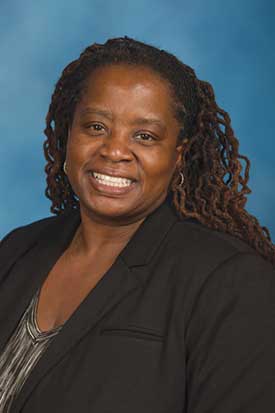
Dr. Nina Nabors
Rehabilitation psychology. Community integration. Sexism and homophobia in communities of women of color. Growing up and seeing issues concerning social justice in her community made Dr. Nina Nabors curious about the roles of race, ethnicity, and gender. “My research interests started from my own personal experiences,” she says. Exposure in college and graduate school honed those research interests and helped the 2016 recipient of the Presidential Award for Faculty Excellence figure out how to learn more about human behavior.
Now, as a faculty member in the School of Psychology and frequent dissertation committee member, Dr. Nabors mentors Walden doctoral students through their dissertation research and writing. In the middle of your own research? Here, Dr. Nabors shares tips to help you lead successful doctoral research:
Be passionate about your topic. It’s important to identify a problem or gap that the research will address, but Dr. Nabors says a wholehearted investment is paramount. “As students tell me about their topics, I need to hear their passion and learn about the research they’ve already done. Then I ask questions to help them build a framework for their dissertation.”
Understand your dissertation chair’s role and expectations. Dissertation chairs are primarily doctoral students’ advocates throughout the dissertation process and also serve as the guide for the committee. However, every chair and committee are different. For example, says Dr. Nabors, “I expect my mentees to have a broad foundation, which we provide in the program, a level of independence, and initiative in this process. I provide support and the framework.” Her goal is always to focus first on the content, helping to guide the student’s research and writing.
Seek peer mentoring opportunities. Dr. Nabors thinks mentees can learn a great deal from each other. “If one mentee has a question, it’s probably relevant to all,” she says. She holds monthly conferences with three or four doctoral students to allow them to talk about their goals for the month and what they need to do to reach those goals. Together, they also review how well they did the prior month. “I tell students all the time that they’re doing something almost no one does, so it’s helpful to surround themselves with people who understand that experience.” —Jen Raider



